- Home
- Patricia Briggs
[Hurog 01] - Dragon Bones Page 18
[Hurog 01] - Dragon Bones Read online
Page 18
Pansy snorted suddenly and collected himself: a warhorse ready to do battle. The change pulled me abruptly from my absorption. Heart thrumming, I searched the woods for signs of watchers.
With a nudge of my knee and shift of my weight I spun Pansy in a tight circle, but I didn’t see anything except that the rest of my party was some distance back, with Axiel in the lead and Oreg hindmost. Tosten and Bastilla were engaged in animated discussion. Penrod was rubbing his shoulder under Ciarra’s concerned gaze. Axiel was watching me, his hand on his sword.
I held up my hand flat, signaling him to wait. When he nodded, I set Pansy ahead on the narrow track, which wound through high mountain marshes. Pansy minced forward, twitching his ears this way and that. I was just ready to turn back when the path wove through some willows and into the remains of a village.
Thank the fates I had kept the others from following me, was all I could think. I didn’t want Ciarra or Tosten to see this. This didn’t look like any of the raided villages we’d come to before.
The Vorsag had demolished the village houses and piled the wood and thatch along the road. The bodies of the villagers were laid out very carefully on top. Someone had tried to start a pyre to burn the dead, but the rain had gutted it before any of the bodies had been more than scorched. It was the smell of wet char and blood that must have alerted Pansy.
I dismounted and led the stallion behind me.
Though we’d seen the results of Vorsagian attacks before, I hadn’t seen anything like this. At the other villages, there were survivors who’d run at the first sound of trouble. If the Vorsag hadn’t killed every living soul in the village, they’d certainly tried. The Vorsag, like Shavigmen, buried their dead, but they hadn’t been, up to this point, concerned enough with the possibility of the Oranstonians’ unquiet spirits haunting their village to burn the dead. I didn’t think that they had suddenly started now.
My father said he learned the most about the enemy when they broke away from their usual actions. What was different about Silverfells?
They had a temple with a stone dragon.
I backed away from the pyre and looked for the temple—or for where it had been. The Vorsag had ravaged the village for the wood in their pyre, and there weren’t many buildings standing. In the end it could have been any of four sites, but I couldn’t tell for certain. But there was nothing that could have been Axiel’s stone dragon unless it was smaller than my fist.
Who was calling the shots for Vorsag? Kariarn was only a few years older than me. Normally, that would mean that he was either ruled by or at least was guided by his advisors. But I’d met Kariarn. If someone else was pulling the strings, then they were more devious than I was. Possible, but not likely.
When Kariarn had been in Estian, he’d had his people scour the countryside for artifacts purported to be magical. What if that was what he was doing now? What if they raided the villages with temples dedicated to Meron, took the artifacts, and then burned the villages to disguise what they had done?
Most of the temples had only junk, but that was not always true. Oranstone, like the other kingdoms, was an old land. There were ruins that yielded unexpected treasures. Some of the temples held powerful magic. I searched the ground carefully, but there was nothing to indicate that a large object had been moved: no wagon tracks, no deep hoofprints. But the Vorsag had been here, more than fifty of them, perhaps even a hundred. The falling rain obscured the tracks.
It had been a long time since Axiel and Penrod had been here with my father. It was possible that since that time the stone had been moved, but I was convinced it was Kariarn who took it.
Just how much power could Kariarn gather that way? I’d been taught that the days of great magic were past with the passing of the great Empire. The theory was that there was only so much magic in the world, and gradually it had been used up. My father had claimed that there never was an age of great magic, just great storytellers.
But what if the magic was stored in thousands of artifacts? What if one person collected all of them and found a way to get the magic out? I had to find Oreg.
I started back, but stopped when I neared the stacked bodies. If the Vorsag had tried to burn them, it was not out of respect for their enemies; it was to hide something the villagers’ bodies might tell.
There were seventy-two men, women, and children laid out singly on the wood pile. Most of them were naked, facedown, and blindfolded with strips of rags (probably from their own clothing), and bound hand and foot. Those that weren’t bound looked as though they’d died in the fighting when the Vorsag had first attacked. There were no flies—the one blessing the rain brought.
I was born and bred to prevent things like this. Being Hurogmeten was more than owning land—it was taking care of the people who lived there. Responsibility was bred in my bones, and the high king’s failure to protect these people enraged me.
If this land had a lord to oversee it properly, no Vorsagian troop as large as this one would have come here and had the time to do this. But the rightful lord of this land had died in the Rebellion, and King Jakoven had not seen fit to replace him, leaving Silverfells unprotected.
I turned over the body of a young girl. Her face was smudged with the dirt of childhood broken with clean trails of tears that the rain began to wash away. Her body was cool to the touch. The only wound I could find was a slit as wide as two of my fingers in her throat. There were runes drawn on her torso. Some of them were done with paint and started to run as soon as the rain touched them, but others had been cut into her skin. Seventy-two Oranstonians, I thought, glancing at the rest of the bodies. This must have taken a very long time.
I inspected the skin under the bindings at her wrists and ankles to see what they had to tell me. Her wrists were raw, but the bindings on her ankles had cut almost to the bone. That and the lack of pooling blood where she’d been lying told me she had been hung by her feet so the blood would drain from her neck more completely, just like a hog at slaughtering time.
It was the analogy that tore the cap off my rage. Deep within me, my anger fanned a fire that had smoldered since Aethervon had awakened it at Menogue. It poured through my chest, down my arms, and out my hands. I couldn’t see the magic I felt thundering in my veins, but the wet wood and thatch lit when I touched them. Pansy snorted and backed as far from the burning, smoking mess as he could without pulling on the reins, as the fire traveled rapidly through the wet fuel, releasing the spirits of the dead for their journey beyond.
Son of my father, I’d never sworn fealty to a god nor taken much interest in religion. I knew little of Meron and less of the war god, Vekke. And, after what Aethervon had done to Ciarra, I would not give these people to him. They needed justice. A prayer my nurse had sung to me when I was a child came naturally to my tongue. A Shavig prayer was out of place in these wetlands, but I closed my eyes and sang to Siphern, god of justice and balance, as the flames roared higher.
And he came. I didn’t see him, even when I opened my eyes, but I felt him: felt his anger at the village’s death, felt him gather their frightened spirits to his bosom, felt his touch on my forehead as he left.
When I finished my song, I felt peaceful, even empty. And in that emptiness came clarity and honesty. The reason for my foul mood the past few days wasn’t the rain; it was the growing knowledge that Hurog was lost to me. Even if I won glory defending Oranstone (which was unlikely, even under better circumstances), the king cared nothing for this kingdom. Witness how he failed to protect these villagers. My uncle would care for Hurog better than my father ever had, and his sons after him.
But for the first time, I had an attainable goal. I would help these people who had no one else to help them.
“Lord Wardwick?” Axiel’s voice sounded breathless, and when I turned to look at him, he was on his knees with his head bowed.
His posture alarmed me, so I reached down and tugged him to his feet. “I thought I ordered you all to wait.”
Hope and wonder lit his face when he looked at me. “We waited for a quarter mark, but we heard nothing. Since I can take care of myself a bit better than Penrod and the youngsters, I came ahead while the others still argued about what to do. I imagine they’ll be along soon.” He drew a breath. “When I came through the trees, my lord, I smelled evil as I haven’t known for centuries—blood magic. Then I heard you sing Siphern all the way from the Northlands for these people. He cleaned this vale of evil for you, my lord. My father told me that our hope was in Hurog. I did not know until now he dreamed true.”
I squirmed under his regard. Truthfully, I didn’t know what I’d done to invoke it. Lighting the pyre was something Bastilla or Oreg could have done with half the effort. And . . . had he said centuries?
“Centuries?” I squawked.
He grinned sheepishly and rocked back on his heels. The awe was gone from his expression, but it had left his face altered in its wake. The watchful caution that was the usual aspect of his countenance had given way to a silly grin that was out of place in the presence of so much death.
“Yes, well,” he said. “My father’s people tend to live a bit longer than humankind. I was sent to Hurog half a century ago to find hope for my people, the salvation of dwarvenkind.”
Salvation of dwarvenkind? I wanted to ask. Instead, I said, “You don’t look like a dwarf.”
“I take after my mother. My father is so tall—” He raised a hand to his shoulder. “—and twice my weight.”
White, steamy smoke and the smell of burning flesh billowed off the wet tinder. The smell reminded me of the mystery of what had happened here at Silverfells. I grasped onto it hard, a task to fill the emptiness Hurog’s loss had left me with.
I asked, “Do you remember how big the stone dragon was?”
“A bit larger than Pansy,” he said after a moment. “It didn’t look like the dragon in the Hurog coat of arms, but it didn’t look like much of anything else, either. It was more like a piece of stone a good mason had started working into shape, but there weren’t any chisel marks.”
“It’s not here,” I said. “Or at least I couldn’t find it. I also couldn’t find any sign of it being moved.”
Axiel coughed and moved away from the fire. “That’s odd. I suppose someone could have moved it since we were here.”
“I don’t know a lot about magic,” I said focusing on the burning bodies. “What if I told you that most of the villagers were bled dry like slaughtered sheep, and I couldn’t find any great dark places in the dirt where so much blood had flowed?”
Axiel frowned. “I’d say that it was blood magic I smelled earlier, and it would take a powerful one to consume this much blood. The king’s best mage is no more powerful than Bastilla. Of all the human wizards I’ve seen lately, only Oreg could work the kind of magic that would require so much blood.”
Axiel thought Bastilla as powerful as the high king’s mages? I knew she was better than she claimed, but I couldn’t recall seeing her do anything spectacular. I opened my mouth to ask, but Pansy tossed his head and called out a greeting as the rest of our party emerged from the trees.
Oreg stopped his horse near me but didn’t dismount. “Impressive,” he said looking at the fire. “You build this yourself?”
“No,” I said. “The Vorsag. Oreg, Bastilla,” I said, as the others crowded around. “The dragon stone is gone. Axiel says it was as big as Pansy, but I could find no sign of anyone dragging it off. The villagers were hung and bled out, their bodies covered with arcane runes.” I should have waited to light the pyre, but I had been feeling more than thinking.
Oreg tilted his head, staring at the pyre with dreamy eyes as an odd half smile tugged the corners of his mouth. “I smell dragons,” he said.
“Axiel said he thought there was blood magic involved.”
“There is a taint to blood magic,” replied Bastilla. “And I don’t feel it here.”
I didn’t feel up to explaining about Siphern. Weariness from working magic and from the knowledge that the hole in my spirit where Hurog belonged was permanent made me want to keep it as simple as I could. “Could a mage or a group of mages drain an object of magic and use it for themselves?”
“Yes,” said Oreg at the same moment Bastilla said, “No.”
I raised my eyebrows at them, and Bastilla finally shrugged. “I suppose it’s possible. Theoretically. But the stone would still exist—just not magic.”
“Not this stone,” disagreed Oreg, still in that strange, dreamy state. “I smell dragon.”
“Could they have transformed the stone?” asked Penrod.
“That stone felt like dragon magic,” said Axiel. “Could something have transformed a dragon into the stone, and the Vorsag released it?”
A cold chill ran down the back of my neck just before the steady drizzle of rain turned to a torrential downpour.
“Kariarn has a dragon?” asked Tosten.
“Someone has a dragon,” said Oreg peacefully.
Part of me was chanting euphorically, I knew there were still dragons, I knew it, I knew it, while the rest of me tried to figure out what Kariarn would do if he controlled a dragon.
“Where do we go from here?” asked Bastilla.
Good question. I put the thought of the dragon aside for the moment. That done, the question was fairly simple to ask. I only needed one more bit of information to test out my theory about the Vorsagian attacks, and I knew where to get it.
“Axiel,” I asked, “Do you know how to get to Callis from here?”
“Callis? Yes, I think so. Why Callis?”
“Because I need information. And if anyone has information on what’s been going on here, it’s that old fox Haverness. Last I heard, he rules at Callis still.” Haverness’s people would know if the other villages the Vorsag hit had held better artifacts than the ones that had been passed by. They would know where other likely targets would be. My father had said that Haverness knew more about what the king’s troops had been doing than the king had for all the old fox tramped about court looking as though butter wouldn’t melt in his mouth.
THE POURING RAIN EASED a bit after an hour or more. For lack of a better place, we set up camp in a relatively sheltered spot under some trees. The fire smoked and sputtered, but it was good enough to cook over. It was my turn to do the cooking.
Oreg had gone hunting and produced a pair of rabbits. I had them spitted and turning over the fire when Ciarra came to sit beside me and took one of the spits, more because she wanted decent food to eat than out of any desire to help me.
“So you’re not avoiding me anymore, eh?”
She grinned at me and tapped my face.
“Me? Grumpy?” When she raised her eyebrows, I said, “It rains all the time here, and we’ve been running around not accomplishing much for the better part of the summer.”
She shook her head at me and pointed to the sky, then to my face.
“I know it’s still raining,” I said. “But now I know what we need to do.” It was true. Kariarn had a dragon and possibly more magic than the world had seen in an age, an entire village had been slaughtered, Hurog was lost, but I felt better because I knew what I was going to do. “You’re turning the rabbit too fast.”
She leaned against my shoulder but didn’t noticeably slow the spit. Her rabbit was perfect; mine was too pink in the middle. Not that it mattered, as hungry as we were.
We all went gathering wood after dinner except for Ciarra who, armed with a hunting horn to call us, stayed with the horses. Usually we all traveled separately, but this time Oreg came trotting by my side. He was quiet for a bit, but I could tell from the bounce in his step that he was just biding his time.
“So you decided to be a hero, again,” he said finally. I couldn’t decide if there was sarcasm in his voice or not.
“Oranstone needs a hero,” I said, kicking a stone out of the path with a little more force than necessary.
“Are you going to free th
e dragon?”
“Oreg. Gods, there are seven of us! What do you think we can do?” And there, I thought, was the problem with my scheme to help the Oranstonian villagers. I wasn’t a legendary warrior like my father; I wasn’t Seleg; I had no army. It was like the story about the fly who declared war on the horse who took no notice.
“He can’t be allowed to keep her,” he said with sudden heat. “There were no flame marks where the dragon fought. They must have it under a spell.”
A spell? My mind boggled at the thought of how much power it would take to control a dragon. “Could you break a spell strong enough to hold a dragon?” I asked.
His silence answered me. At last he said, “What are you going to do?”
“I’m going to Callis. From there, I’ll send a message to the king, my uncle, and Haverness, so something is done to stop Kariarn—if anything can stop him now.”
“They’ll try to kill it, Ward.” Oreg said in a low tone. He meant the dragon. “They can’t afford to let him use a dragon.”
“And just tell me what else they can do.” I said, knowing he was right.
We walked a few more paces, Oreg’s face turned away from me.
“Seleg didn’t need an army to kill a dragon.”
I came to a full stop. “What do you mean?”
“If one Hurogmeten killed a dragon, why shouldn’t you?”
I scarcely noticed the sarcasm as a cold knot settled in my stomach. “Seleg chained the dragon?” My hero killed the dragon in the cave?
Protect those weaker than yourself, he’d written. Be kind when the opportunity is given. Ideas that no one else in my father’s home would have said aloud for fear of being laughed at. Seleg set forth the ideals I’d tried to follow. But it was impossible to disbelieve Oreg’s truth.
“And killed her so he’d have the power to defeat the invading fleet. He was scared. Frightened he’d lose Hurog.” There was something wrong with Oreg’s voice, but I didn’t pay attention to it.

 Wolfsbane
Wolfsbane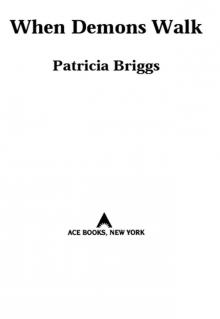 When Demons Walk
When Demons Walk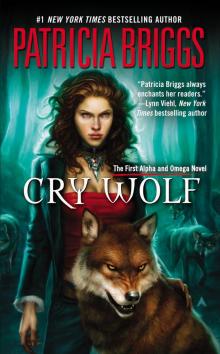 Cry Wolf
Cry Wolf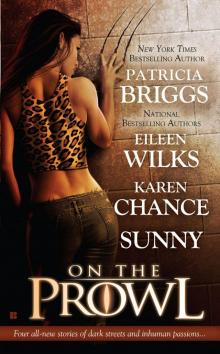 On the Prowl
On the Prowl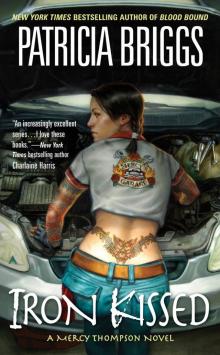 Iron Kissed
Iron Kissed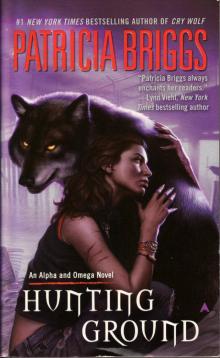 Hunting Ground
Hunting Ground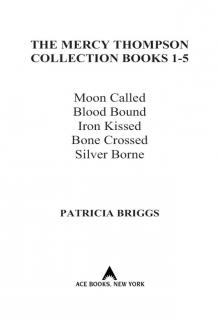 Patricia Briggs Mercy Thompson: Hopcross Jilly
Patricia Briggs Mercy Thompson: Hopcross Jilly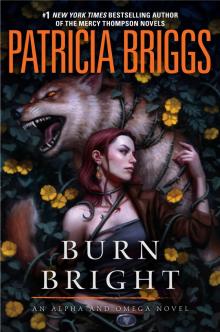 Burn Bright
Burn Bright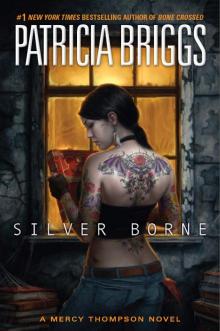 Silver Borne
Silver Borne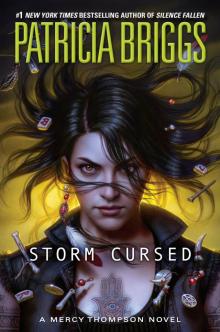 Storm Cursed
Storm Cursed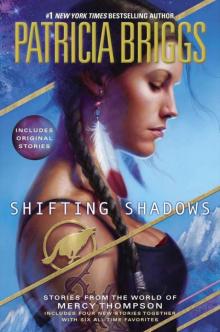 Shifting Shadows
Shifting Shadows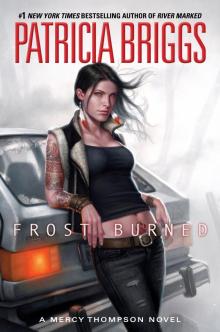 Frost Burned
Frost Burned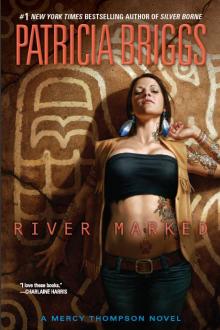 River Marked
River Marked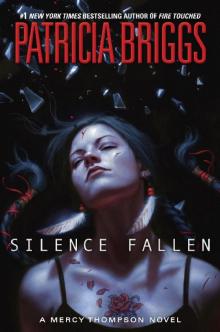 Silence Fallen
Silence Fallen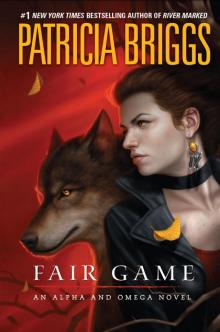 Fair Game
Fair Game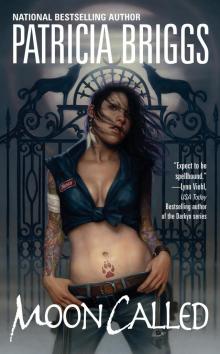 Moon Called
Moon Called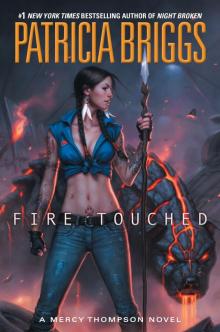 Fire Touched
Fire Touched Dead Heat
Dead Heat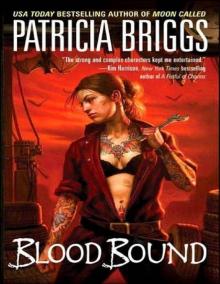 Blood Bound
Blood Bound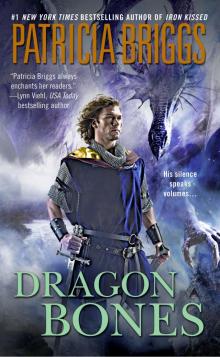 Dragon Bones
Dragon Bones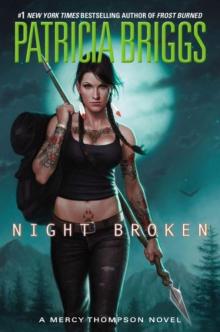 Night Broken
Night Broken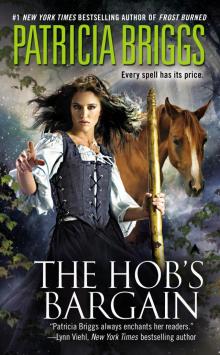 The Hobs Bargain
The Hobs Bargain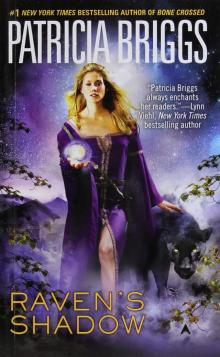 Ravens Shadow
Ravens Shadow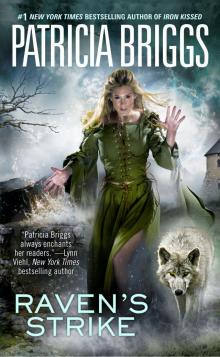 Ravens Strike
Ravens Strike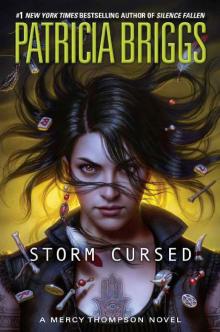 Storm Cursed (A Mercy Thompson Novel)
Storm Cursed (A Mercy Thompson Novel)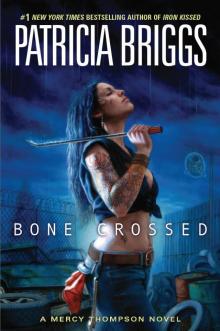 Bone Crossed
Bone Crossed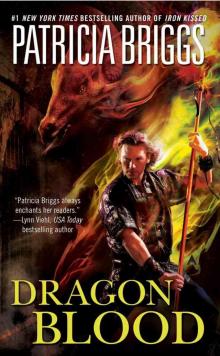 Dragon Blood
Dragon Blood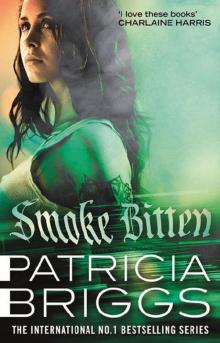 Smoke Bitten: Mercy Thompson: Book 12
Smoke Bitten: Mercy Thompson: Book 12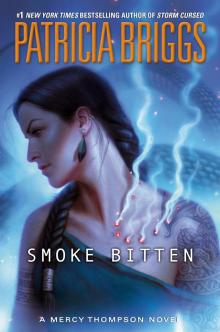 Smoke Bitten
Smoke Bitten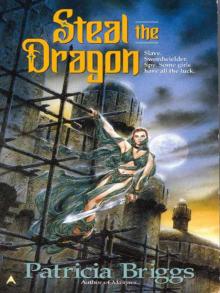 Steal the Dragon
Steal the Dragon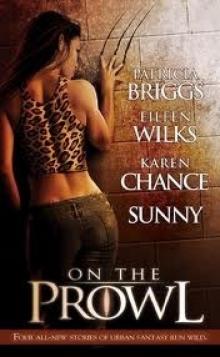 0.5 On The Prowl (alpha and omega)
0.5 On The Prowl (alpha and omega)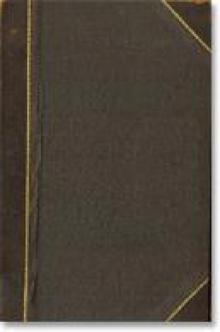 Alpha and Omega
Alpha and Omega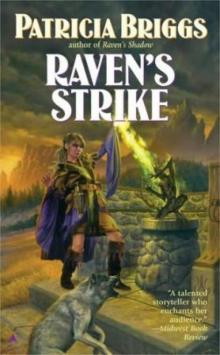 Raven's Strike rd-2
Raven's Strike rd-2![[Mercy 03] - Iron Kissed Read online](http://i1.bookreadfree.com/i/03/24/mercy_03_-_iron_kissed_preview.jpg) [Mercy 03] - Iron Kissed
[Mercy 03] - Iron Kissed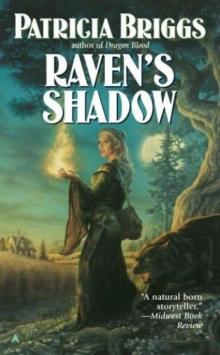 Raven's Shadow rd-1
Raven's Shadow rd-1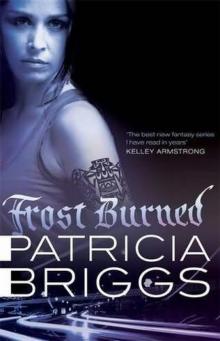 Frost Burned mt-7
Frost Burned mt-7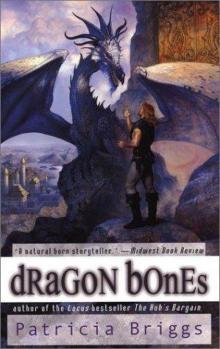 Dragon Bones h-1
Dragon Bones h-1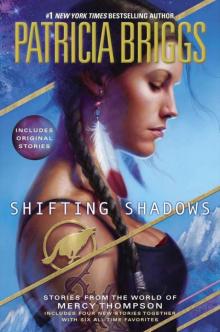 Shifting Shadows: Stories from the World of Mercy Thompson
Shifting Shadows: Stories from the World of Mercy Thompson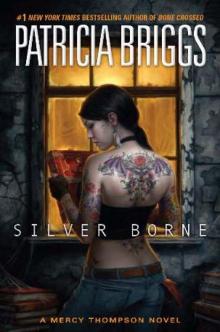 Silver Borne mt-5
Silver Borne mt-5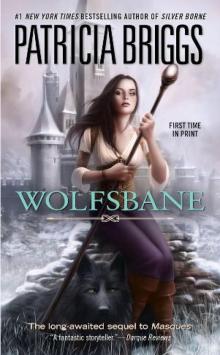 Wolfsbane s-2
Wolfsbane s-2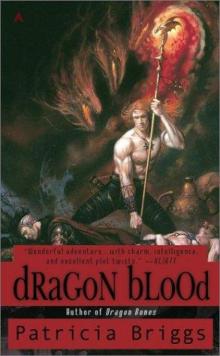 Dragon Blood h-2
Dragon Blood h-2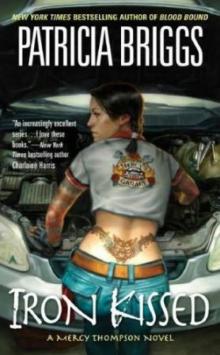 Iron Kissed mt-3
Iron Kissed mt-3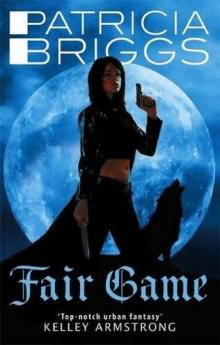 Fair Game aao-3
Fair Game aao-3 Masques s-1
Masques s-1![[Hurog 01] - Dragon Bones Read online](http://i1.bookreadfree.com/i1/04/03/hurog_01_-_dragon_bones_preview.jpg) [Hurog 01] - Dragon Bones
[Hurog 01] - Dragon Bones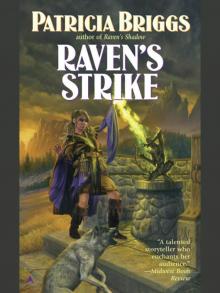 Raven s Strike
Raven s Strike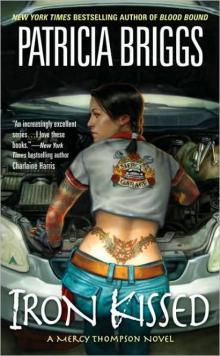 Mercedes Thompson 03: Iron Kissed
Mercedes Thompson 03: Iron Kissed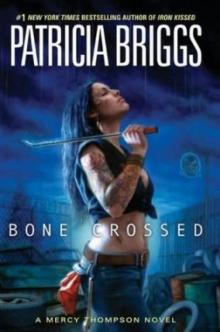 Bone Crossed mt-4
Bone Crossed mt-4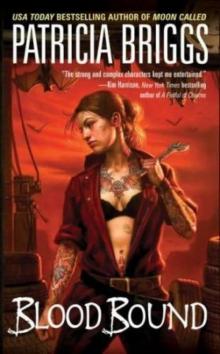 Blood Bound mt-2
Blood Bound mt-2![[Mercy 01] - Moon Called Read online](http://i1.bookreadfree.com/i2/04/09/mercy_01_-_moon_called_preview.jpg) [Mercy 01] - Moon Called
[Mercy 01] - Moon Called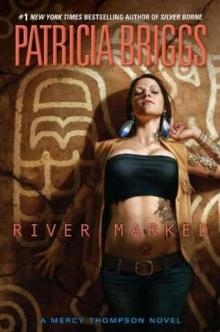 River Marked mt-6
River Marked mt-6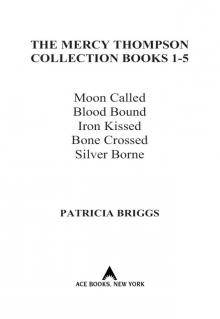 The Mercy Thompson Collection
The Mercy Thompson Collection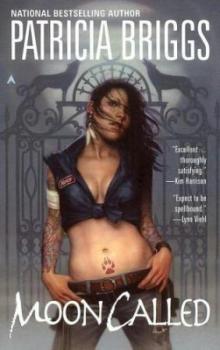 Moon Called mt-1
Moon Called mt-1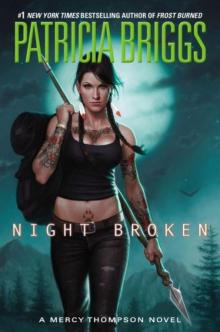 Mercy Thompson 8: Night Broken
Mercy Thompson 8: Night Broken